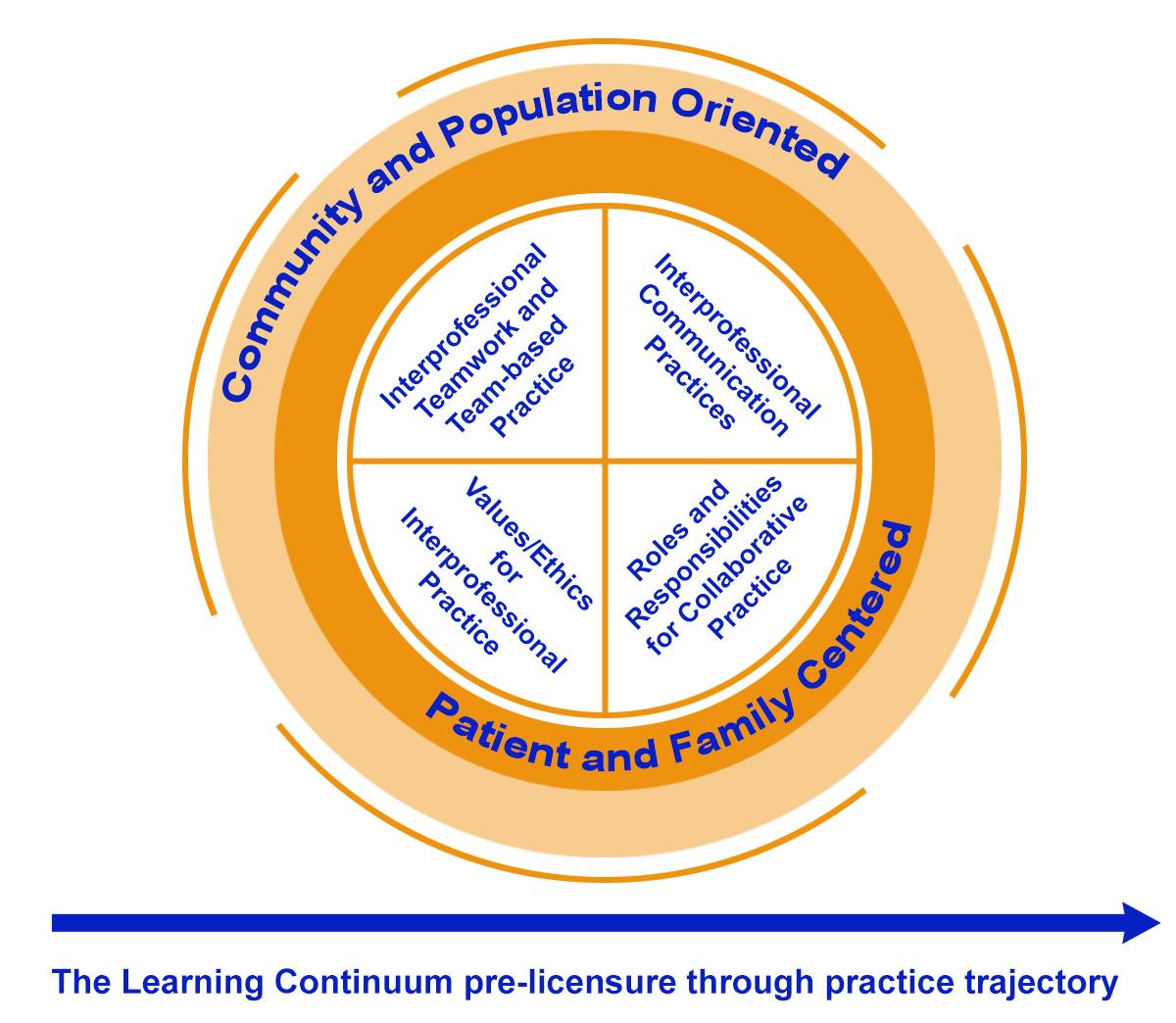IPEC Core Competencies
The Core Competencies for Interprofessional Collaborative Practice were released in 2011 and updated in 2016 (IPEC, 2011; IPEC, 2016). These competencies were developed by an expert panel that was sponsored by the Interprofessional Education Collaborative and included representatives from six different professional education organizations.
These IPEC core competencies guide the Center for Health IPE's interprofessional education and practice initiatives. One of the first steps needed to implement the core competencies is to ensure that faculty, preceptors, students, and practitioners are all aware of these competencies. To see examples of each competency, check out our videos.

Image adapted from IPEC Core Competencies for Interprofessional Collaborative Practice: 2016 Update
Values/Ethics for Interprofessional Practice:
"Work with individuals of other professions to maintain a climate of mutual respect and shared values" (IPEC, 2011; IPEC, 2016. pp.11).
Based on the common goal of providing high quality, patient-centered health care, demonstrate mutual respect, trust, integrity, high standards of ethics while valuing differences when working with members of other health professions.
Roles/Responsibilities:
"Use the knowledge of one's own role and those of other professions to appropriately assess and address the health care needs of the patients and populations served" (IPEC, 2011; IPEC, 2016, pp.12).
Understand the roles and responsibilities of the different health care professionals on the team in providing safe, efficient, and effective patient-centered health care that optimizes outcomes.
Interprofessional Communication:
"Communicate with patients, families, communities, and other health professionals in a responsive and responsible manner that supports a team approach to the maintenance of health and the treatment of disease" (IPEC, 2011; IPEC, 2016, pp. 13).
Communicate effectively with patients, families and other health professionals by responding respectfully, listening actively, and seeking common understanding.
Teams and Teamwork:
"Apply relationship-building values and principles of team dynamics to perform effectively in different team roles to plan and deliver patient-/population-centered care that is safe, timely, efficient, effective, and equitable" (IPEC, 2011; IPEC, 2016, pp.14).
Demonstrate effective team work by applying principles of team dynamics, process improvement, and conflict management.